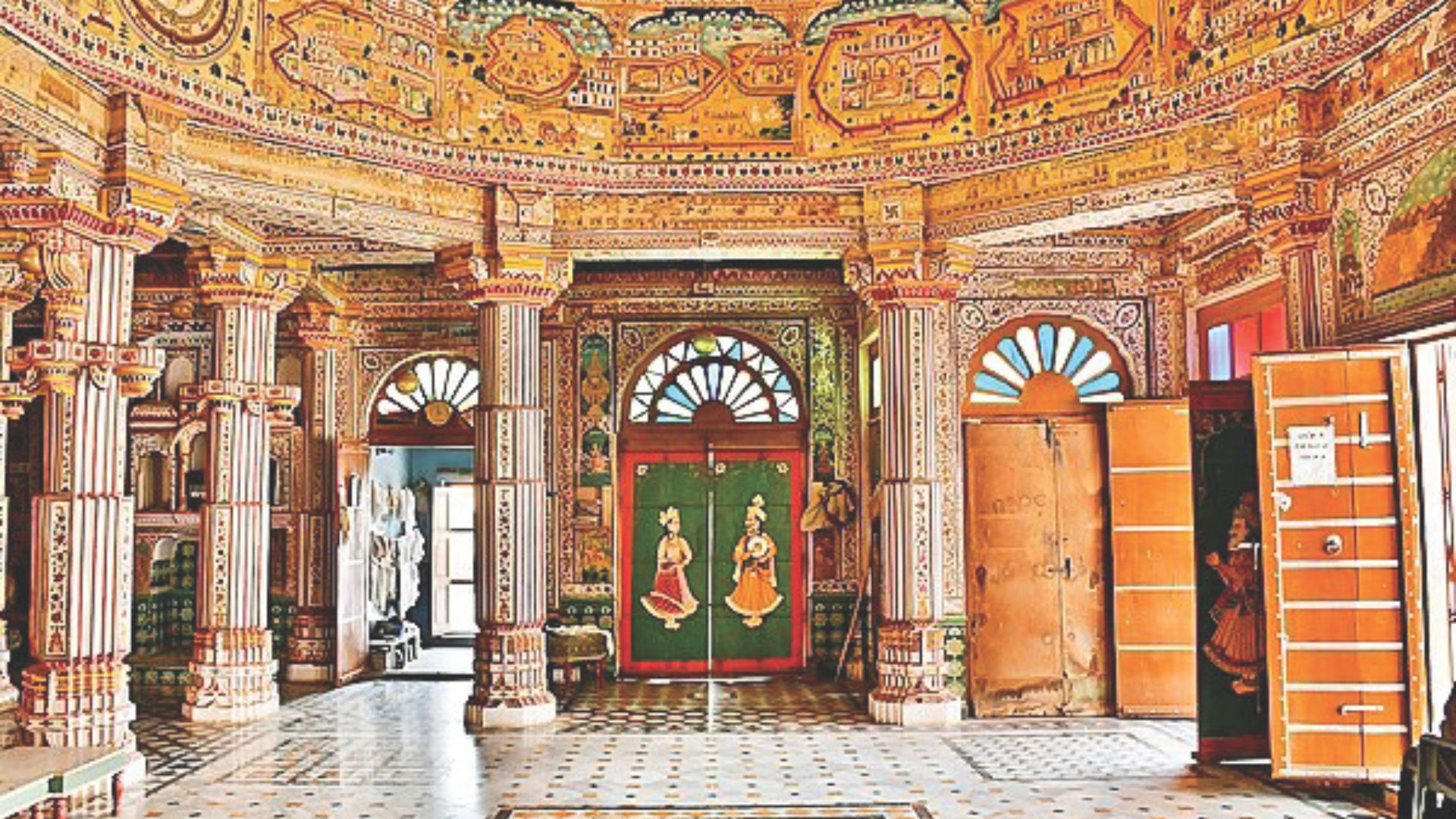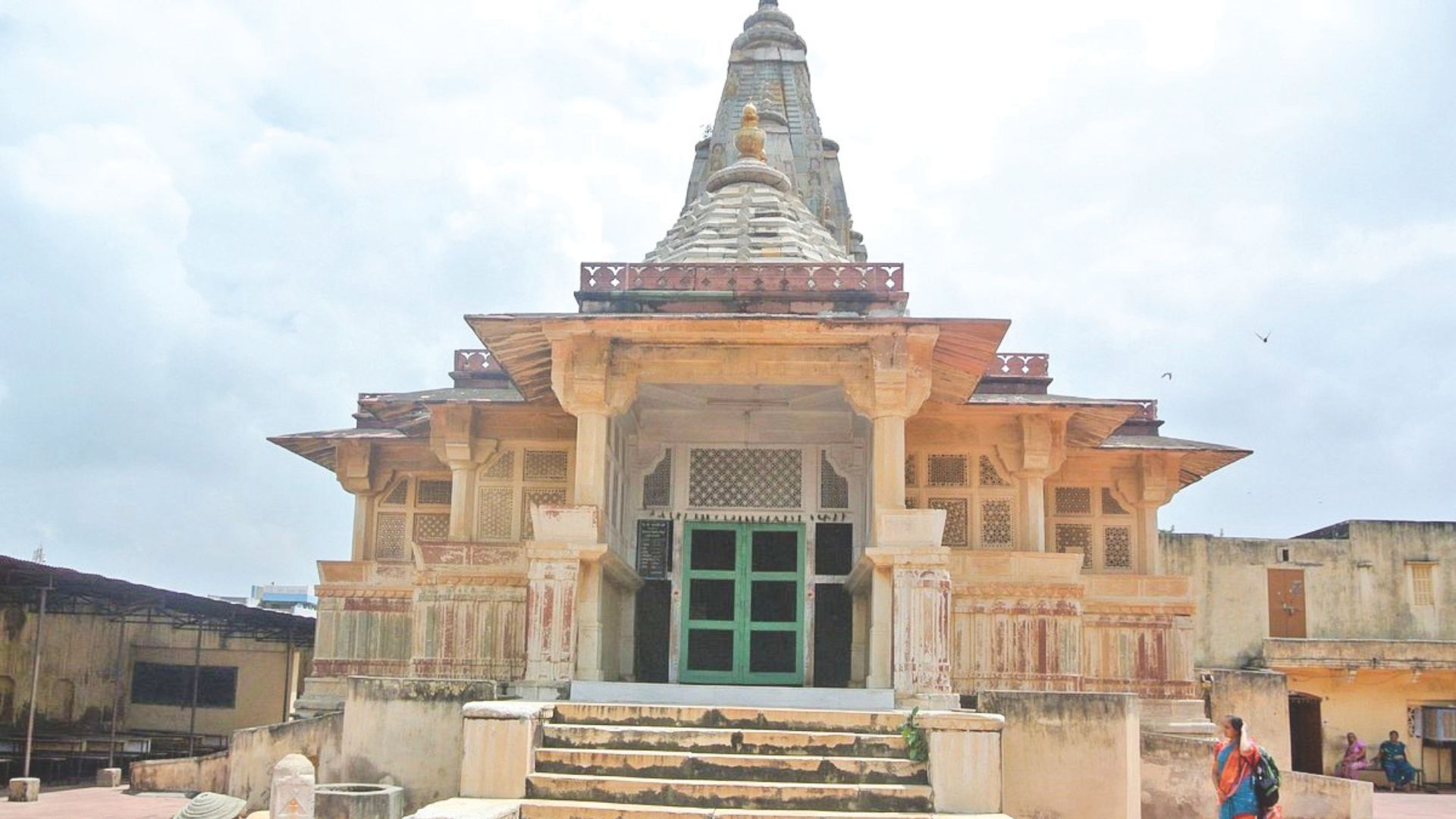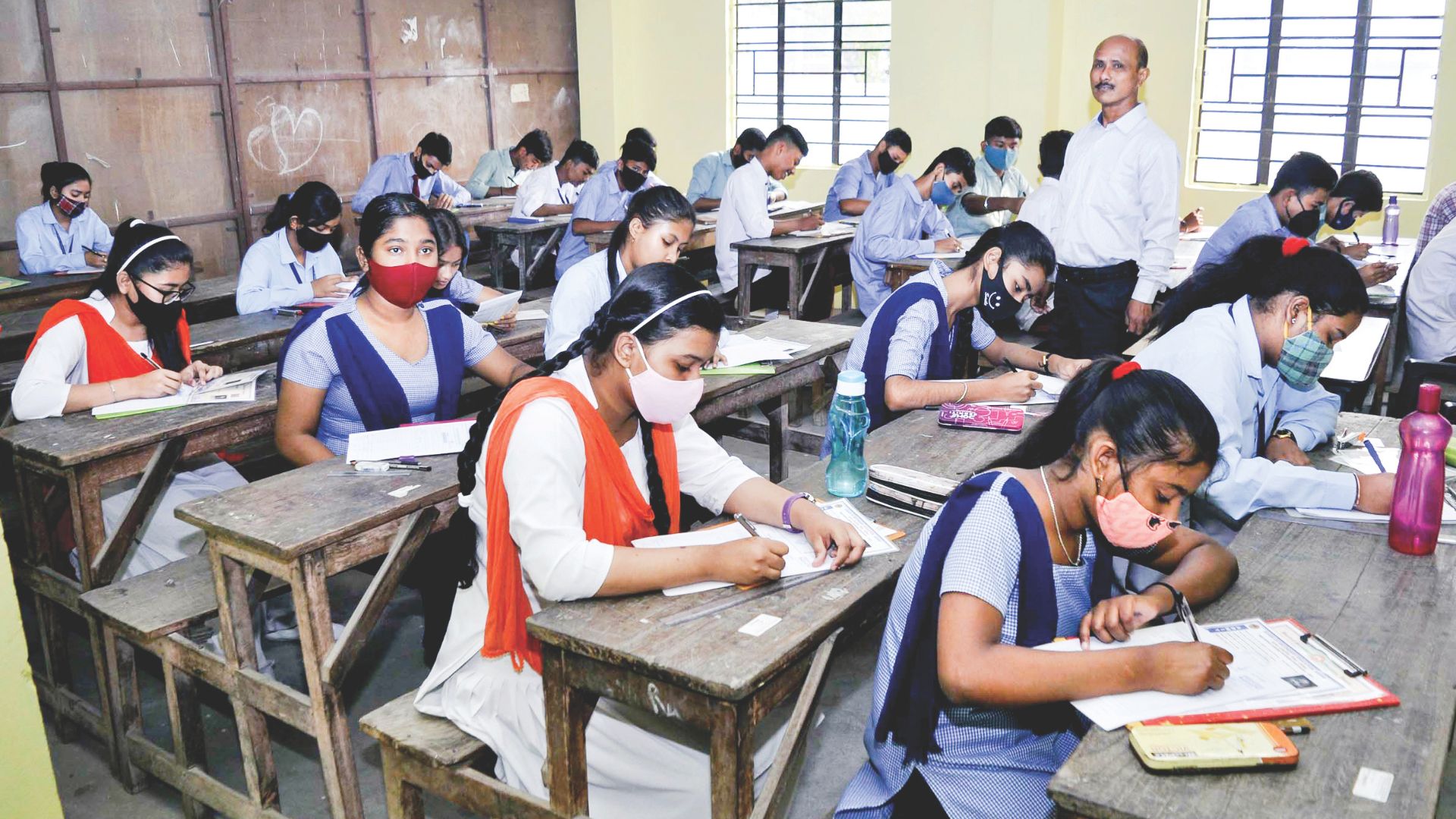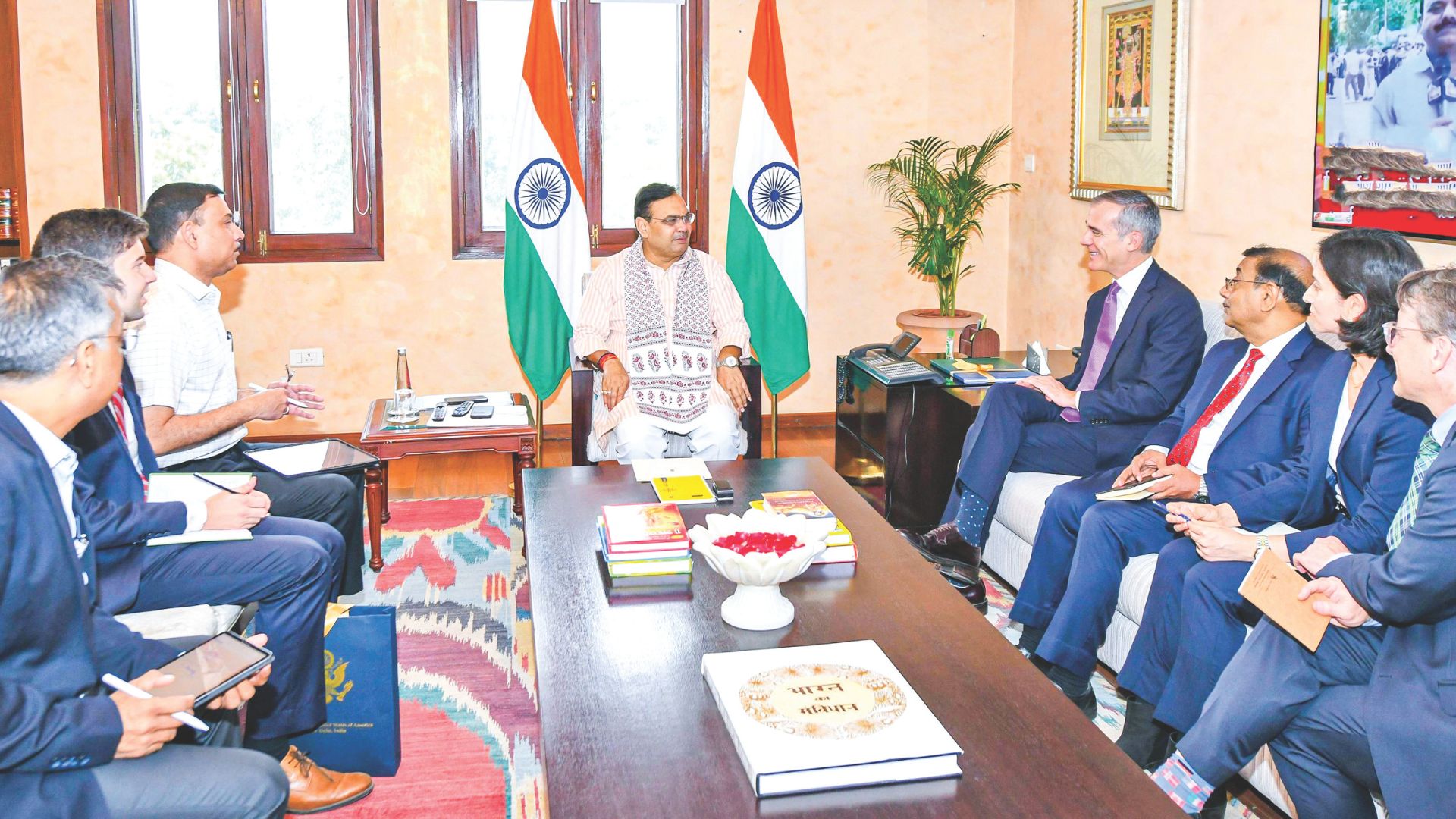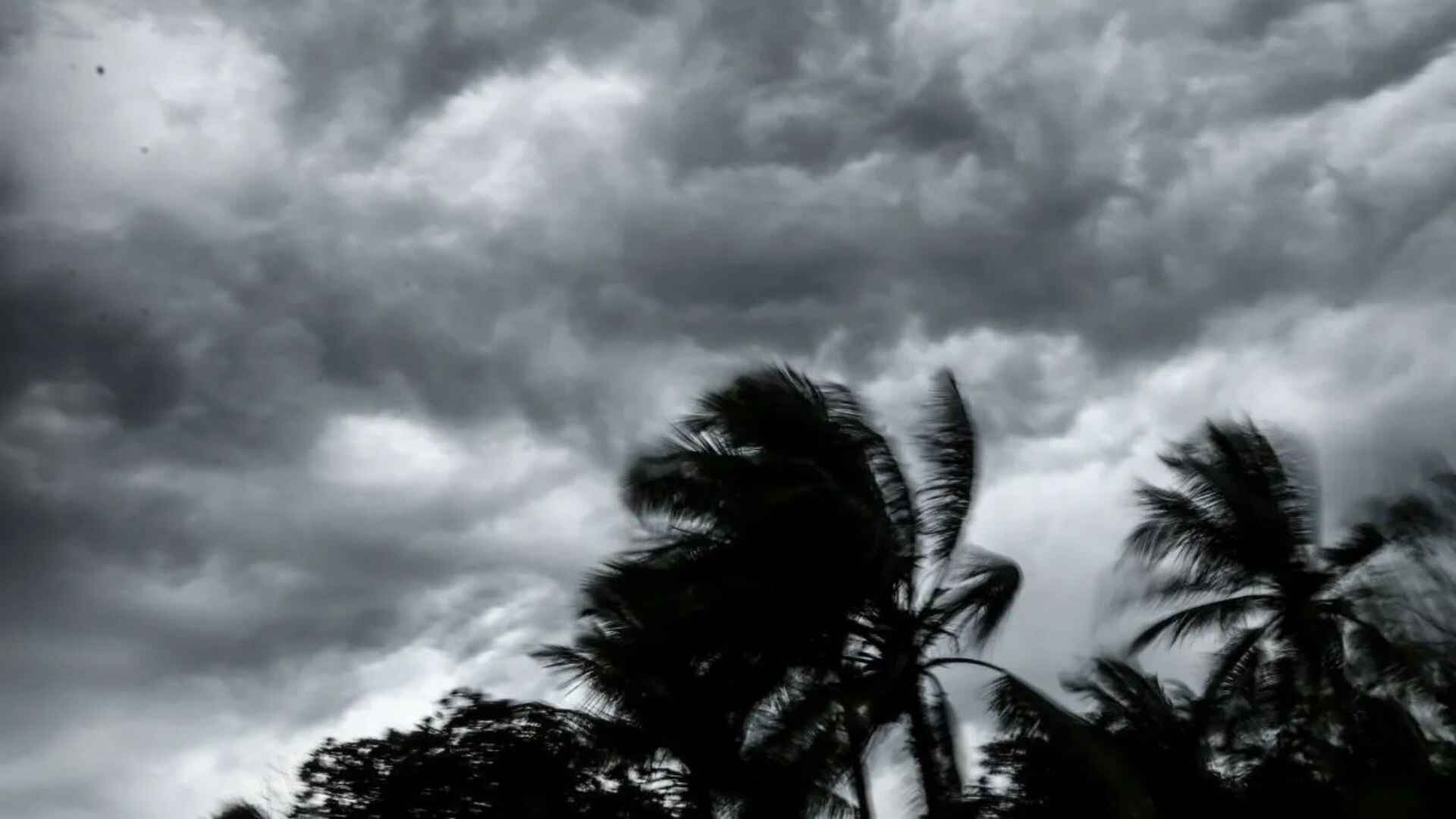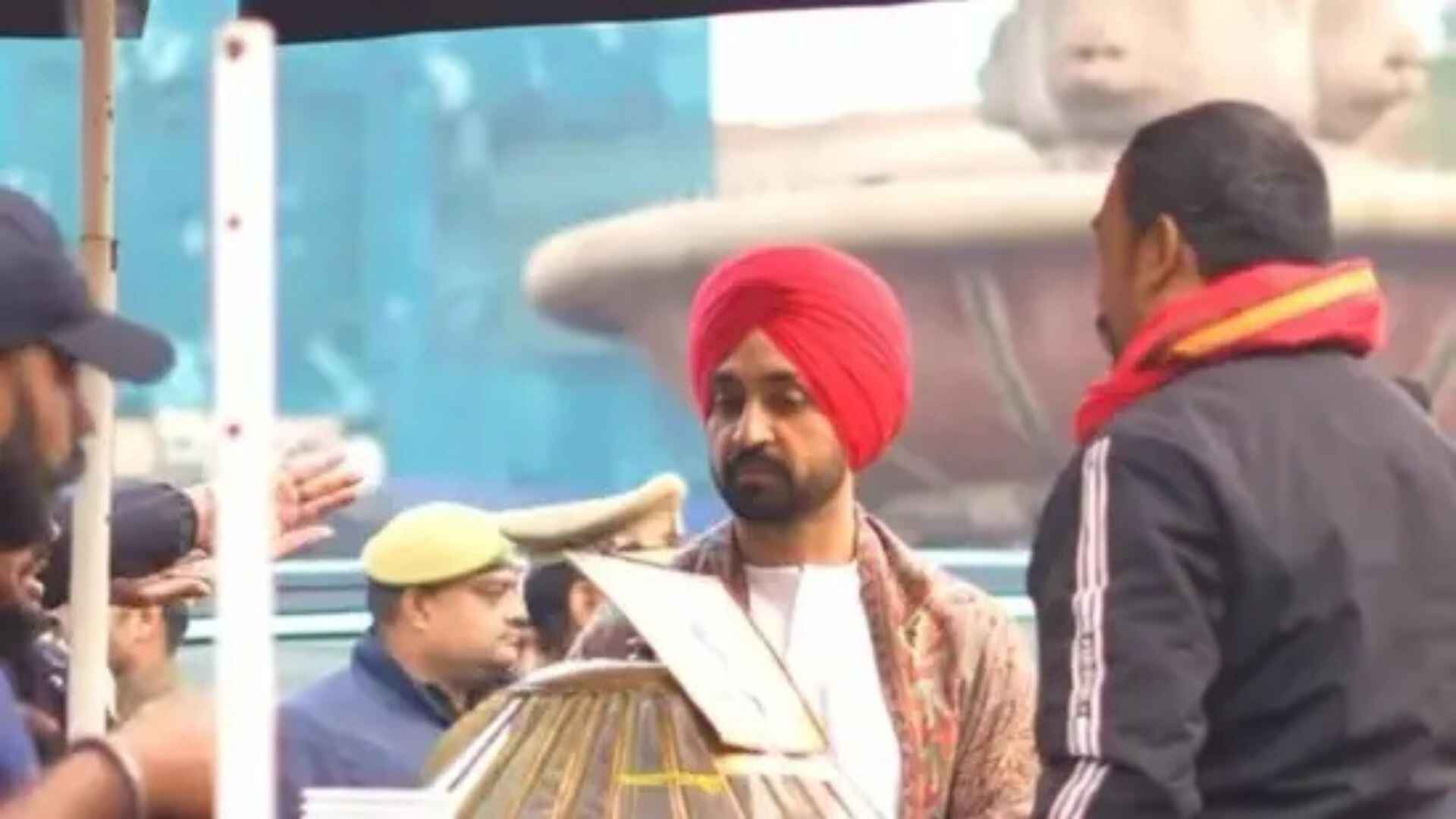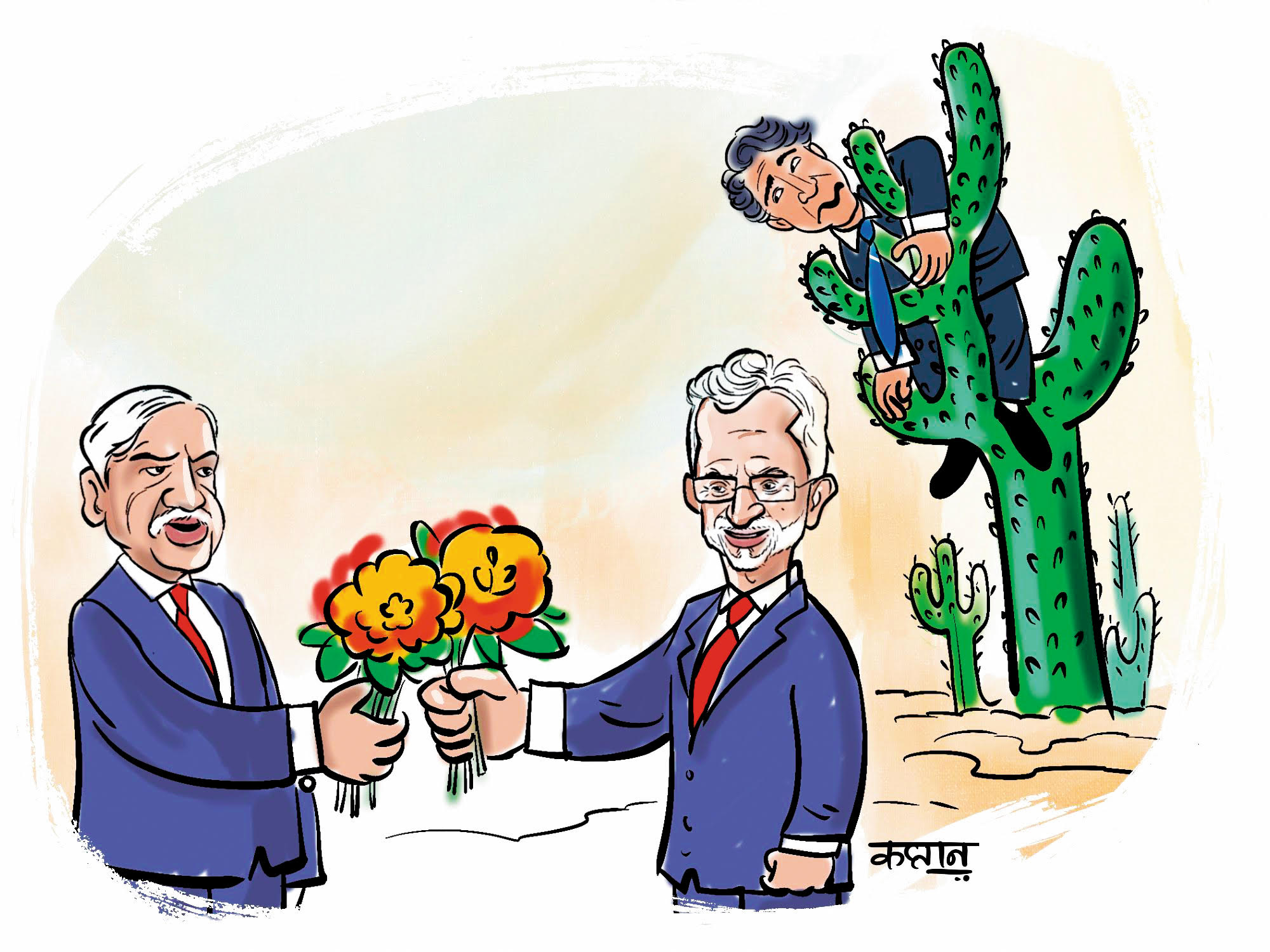
Pakistani leaders were hoping that India would send representatives to the SCO (Shanghai Cooperation Organisation) meeting, but no one expected that India’s foreign minister S Jaishankar would attend the same in person. This surprise move led Pakistan’s former foreign minister Hina Rabbani Khar to exclaim, “Smart move!” Pakistan spared no effort in welcoming the Indian foreign minister.
I recall last year’s SCO meeting in Goa, which was attended by Bilawal Bhutto amid an extremely tense atmosphere. The acrimony was triggered by Bilawal Bhutto himself then. Jaishankar, however, handled the Islamabad visit quite differently. As a seasoned diplomat and influential foreign minister, he made his point strongly but refrained from attacking Pakistan. Pakistani Prime Minister Shehbaz Sharif also adopted a soft tone, avoiding any remarks that could hurt India, including staying away from the Kashmir issue. Overall, the atmosphere was amicable. Typically, a country’s prime minister meets and welcomes only his counterpart, but Shehbaz Sharif walked the extra mile to greet and engage with Jaishankar. Upon returning to India, Jaishankar thanked Sharif on social media for his hospitality, to which Sharif responded positively, thanking him for visiting Pakistan. The overall decorum, reflected in the photos I saw from the meeting, signals improvement in relations. Over lunch, Pakistan’s foreign minister joined Jaishankar and they engaged in friendly discussions. Jaishankar spoke with Sharif during lunch too.
It is worth recalling that only recently, during the United Nations General Assembly meeting in New York, Jaishankar and Sharif were both at each other’s throats. Can this shift in behaviour be seen as a positive sign? I believe that no matter how long enmity lasts, it is not permanent. Neighbouring countries benefit more when they cooperate. Pakistan, currently grappling with severe economic challenges, understands its situation. It is in its best interest to face reality and work towards improving the lives of its people. Both Indians and ordinary Pakistanis long for better relations, but the real obstacle is Pakistan’s ISI and military, whose foundation rests on anti-India sentiment. The fate of Imran Khan, who tried to improve ties with India, stands as a proof of this. So, I am not too optimistic about the immediate thawing of relations. Both countries will need to generate more warmth to break the ice.
Now, let us take a look at the India-Canada relationship which recently hit a new low. Though Canada is not our immediate neighbour, I consider it a close one due to the 18 lakh people of Indian origin living there. Apart from the Indians living there, there are over 2.25 lakh Indian students studying there. A deterioration in relations with such a country is bound to have serious consequences for both sides. Unfortunately, Canadian Prime Minister Justin Trudeau seems oblivious to this fact due to his political agenda. I had previously written in this column about Trudeau’s hostile attitude towards India, especially when he blamed the Indian government after Khalistani terrorist Hardeep Singh Nijjar was killed in Canada. Trudeau is following in the footsteps of his father Pierre Trudeau. In 1985, after the bombing of the Air India flight Kanishka, which killed 329 people, the mastermind, Khalistani terrorist Talwinder Singh Parmar, sought refuge in Canada. Despite India’s request to extradite him, Pierre Trudeau refused. Since then, Canada has become a hub for Khalistani terrorists dreaming of a separate state. These terrorists operate openly, conspiring against India, with Trudeau’s tacit support. If a terrorist conspiring against India is killed, so be it. However, I want to stress that we Indians do not pursue policies that violate the sovereignty of others. Trudeau’s accusations are completely baseless. By pointing fingers at an Indian diplomat, he has violated diplomatic norms, forcing India to recall its diplomats. In a tit-for-tat response, we expelled six of Canada’s diplomats. This is no ordinary event.
One question that crosses my mind is whether Canada’s actions are driven by domestic elections or if Trudeau is speaking someone else’s language. This is particularly relevant since many Canadians have criticised Trudeau’s behaviour. Another question is why is the US pointing fingers at India over the alleged conspiracy to kill Khalistani terrorist Gurpatwant Singh Pannun? Is it a ploy to put pressure on India?
As for the impact of the major rift in India-Canada relations on trade and business, it is too early to predict. However, one thing is certain: the worse the relations get, the more cautious Indian parents will be about sending their children to Canada for education. I believe Canada will suffer more from the chilling effects of this frozen relationship than India.
The author is the chairman, Editorial Board of Lokmat Media and former member of Rajya Sabha.

